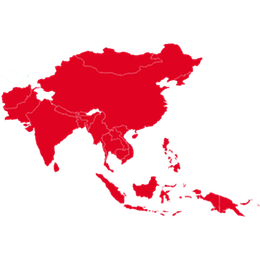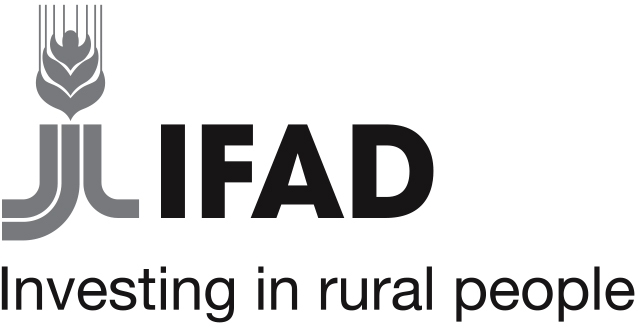Fish marketing societies in Coastal India
"We could not have removed the merchants as individuals. Since we acted as a group, they themselves walked out."
Murugaiyan Manivannan, President of a fish marketing society in Tamil NaduBACKGROUND
Many fishermen on India’s southern coast describe themselves as slaves, debt-bonded to corrupt moneylenders for generations. Traders colluded with the lenders to keep fish prices low.
Fish marketing societies allow fishermen to break the cycle of debt and corruption using collective bargaining power.
WHAT’S INVOLVED
Breaking out of exploitative debt cycles
By forming a collective, fishers gained access to credit at a fair price and were able to sell their catches at a competitive market rate.
Post-disaster recovery
After the 2004 tsunami, hardships were multiplied when many fishers lost their boats and equipment. The scheme supported them in rebuilding their livelihoods.
Using insurance and savings for financial resilience
The subsidies offered by the scheme are paid back gradually through a proportion of earnings. Deductions are also taken for an insurance fund and compulsory savings which can act as collateral for future loans.
EXPLORE THIS SOLUTION
The fish marketing societies project can offer
- knowledge and experience in setting up marketing societies among small-scale producers
- a proven mix of financial resilience tools to support these communities

Countries involved
India
Project partners
Government of India, United Nations Office for Project Services, Tamil Nadu Corporation for Development of Women, Scheduled commercial bank/insurance companies
Project dates
2005 - 2017
Share this solution
Bookmark this solution
BookmarkShow Full Solution
Summary
In the coastal areas of Tamil Nadu in Southern India, fisher communities historically had almost no access to credit or savings to purchase fishing equipment. Their only option was to borrow money at exploitative interest rates from local money-lenders, who were also the local traders to whom they had to sell their catch. These lender-traders would set the price of fish far below the market value even as fishers were compelled to sell to them in lieu of the debt. Due to these obstacles, fishers could never repay their debts.
The Post-Tsunami Sustainable Livelihoods Programme (PTSLP) created fish marketing societies, which opened the credit market to fisher communities and allowed them to repay their debt and take out small loans. The initiative includes financial instruments, such as insurance, which have freed the fisherfolks from centuries of slavery to the money-lenders.
Challenge
For generations, most of the fishers living in coastal villages in the South of India have described their condition as being akin to slavery. With no access to the credit or savings markets, they have had no option but to borrow money, creating long-term debts which in some cases were inherited by their children. Money lenders charged interest at very high rates, typically around 120 per cent. Making the situation even worse, the lender-traders set the fish price far below market value. Since fishers were not allowed to trade with anyone else they could never pay off their debts. After the 2004 Tsunami, the situation got worse when many fishermen lost their nets and boats, meaning none of them could work for the following five months.
Solution
In 2005, IFAD and the Government of India launched PTSLP, a project which is implemented by the State Government of Tamil Nadu. It was put into action in coastal panchayats of six districts; Thiruvallur, Kancheepuram, Villupuram, Cuddalore, Nagapattinam and Kanyakumari. The project objective was to build self-reliant and self-sustainable coastal communities that can minimize the impacts of environment shocks. Among its several components, the programme established some 50 fish marketing societies (FMS) in partnership with the South Indian Federation of Fishermen Societies (SIFFS) – limiting membership to smallholder fisher folks, the owners of small crafts.
- Debt redemption fund. As a mechanism to increase bargaining power, the programme supported the groups by awarding small grants through debt redemption funds. The mechanism cleared the debts of the members of the FMS and empowered the fishermen to sell their catch.
- Financial instruments. In cooperation with local credit institutions, fishers have been able to access small loans. After selling their catch at the local auctions, they collect their money at the society offices, where a percentage is deducted to pay back their debt to the local bank. A share of their earnings is set aside for insurance, which is collectively negotiated by the society members and includes coverage for crew members and against accidental death. Another share is deducted for compulsory saving, which can be used as collateral for subsequent loans. Even after these deductions, the incomes of local fishers have increased by an average of 30 per cent, allowing them to repay their debts in just one year and ask for more loans to expand their businesses.
- Organization. Through the FMS, fishermen formed small village-based groups that gave them more bargaining power to set the price of their catch during cooperative auctioning at the public markets. Acting as a group, they made local traders walk out of the market.
Results
Through the establishment of FMS:
- Terms of trade and access to credit and savings services have dramatically improved for coastal communities.
- Community-based financial services linked to marketing have developed.
- The compulsory saving scheme enabled fishers to access financial resources for their family needs and subsequent loans.
- There has been an extensive training programme for members of fishing societies to make use of the insurance services, with a view to encouraging groups to link up with insurance companies for endowment and pension schemes.
- Fishers can now control the first point of sale of fish, which has been demonstrated to help them get a better price.
Lessons learned and potential for replication
Gradual group development. The best approach to group development is a gradual and flexible one, which allows different groups to adopt their own required development rhythm and to build group cohesiveness and discipline.
Transparent group management and operations. The savings and lending activities, in particular, need to be transparent in order to contribute to group cohesiveness and sustainability. As in any situation where money is involved, suspicion of corruption could easily threaten to break up the societies.
Sustainability. By decentralizing the portfolio of each federation to be managed by the federation, including the debt redemption fund (DRF), SIFFS has contributed to the programme’s sustainability.
Next steps
As the societies gain experience, more financial products will be developed, such as remittances services, savings-linked insurance and pension plans.
Solution Video
Solution Image
Last update: 09/08/2018


